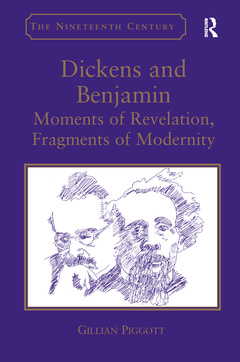Description
Dickens and Benjamin
Moments of Revelation, Fragments of Modernity
Author: Piggott Gillian
Language: English
Keywords
arcades; project; theological; political; fragment; curiosity; shop; german; tragic; drama; Kunstwerk Im Zeitalter Seiner Technischen; Young Man; Theological Political Fragment; Mrs Jarley; Mutual Sources; Norman St John Stevas; Theodor Wiesengrund; Berlin Chronicle; Dickens Quarterly; Benjamin’s Arcades Project; Jonas Chuzzlewit; Nell’s Passion; Arcades Project; Trauerspiel Studies; Bradley Headstone; Modern Urban Experience; German Tragic Drama; Curiosity Shop; Benjamin’s Formulation; Madame Defarge; Gothic City; Benjamin’s Theory; Dead Man; Redemptive Moments; Benjamin Claims
Approximative price 177.01 €
In Print (Delivery period: 14 days).
Add to cartPublication date: 12-2012
Support: Print on demand
Approximative price 53.83 €
In Print (Delivery period: 14 days).
Add to cartPublication date: 05-2017
· 15.6x23.4 cm · Paperback
Description
/li>Contents
/li>Biography
/li>
These books may interest you

Dickens and the City 402.56 €



